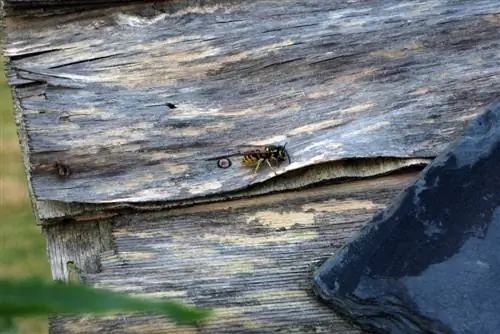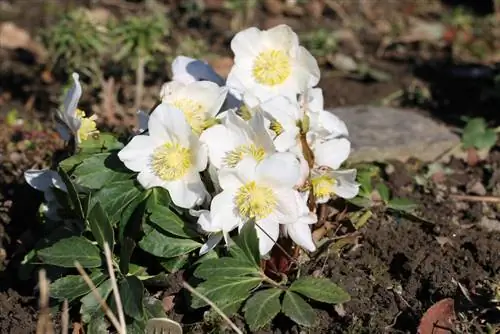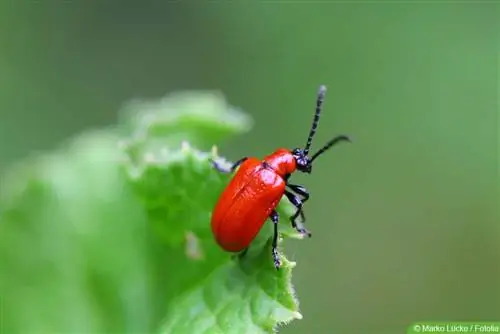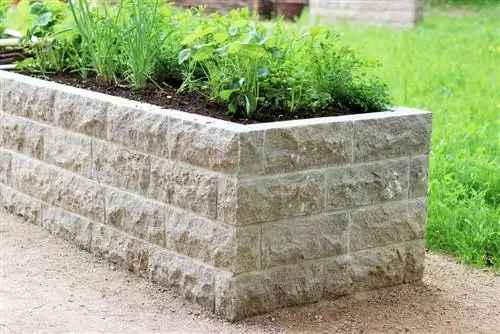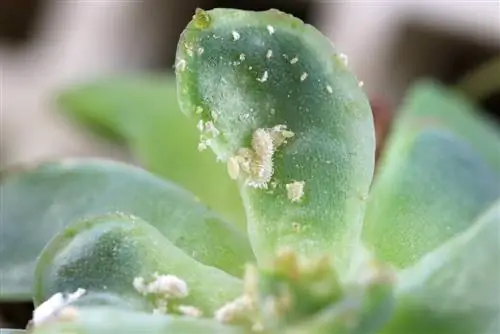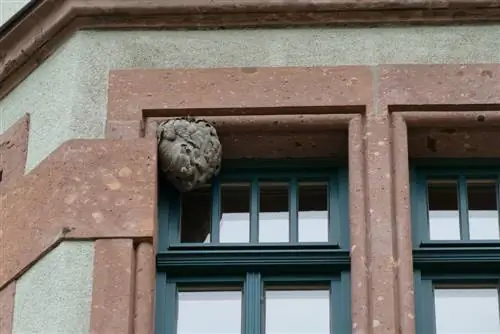- Author admin caroline@plants-knowledge.com.
- Public 2023-12-17 03:39.
- Last modified 2025-06-01 06:48.
Yes, wasps are annoying. Anyone who wants to drink coffee and enjoy fruit cake in the garden or on the terrace in summer is likely to be bothered by wasps. Their bite is painful and causes itching. However, it is not really dangerous - unless you are allergic. If you have a wasp nest on your own property or even directly on your house, fantasies of destruction are quickly awakened. However, driving away or destroying wasps is not that easy. It always depends on “How?”
Legal situation
Wasps are considered wild animals. They are particularly protected by the Federal Nature Conservation Act. Accordingly, it is fundamentally forbidden to injure or even kill them. Their nests, without which they could not live, must not be destroyed - at least not if there is no good reason for this. Such a valid reason could exist, for example, if an allergy sufferer is massively threatened by a wasp nest right outside his window. Violation of these legal requirements can result in a fine.
It is also important in this context: If there is a wasp nest on the property, the neighbor has no right to have the nest removed, even if he feels bothered by the animals.
Tip:
Before you start fighting wasps in their nest, you should definitely check with an expert (for example a professional pest controller) to see whether there is actually a valid reason for the measure.
Wasp control
Fighting wasps is anything but easy. It doesn't really matter whether it's about driving them out or destroying them. The most effective wasp control always starts with the nest. In principle, a distinction must be made between two types of nests, namely above-ground nests and those that are located in the ground, i.e. underground. Above-ground nests are usually found hidden in bushes or woody plants as well as on and in buildings of all kinds. They are relatively easy to locate if you are looking for something. All you really have to do is follow the flight of wasps. However, things are a little more difficult with underground nests.
In any case, they are much harder to find. You actually only discover them when you more or less accidentally see wasps crawling out of a hole in the ground. This hole in the ground usually represents one of several entrances to the nest. In most cases, underground nests are destroyed with water or by using insecticides. The procedure is as follows:
- Introduce a lot of water with a water hose via one of the entrances
- If there are other entrances, close them with earth
- repeat the watering at least once
- If necessary, add an insecticide to the water
Extreme caution is also required when fighting wasps with water. Not all animals will drown immediately. Since an underground nest has multiple entrances and exits, some animals will definitely be able to escape. Since they are then under stress, they are usually particularly aggressive and attacking. It is therefore advisable to wear a protective suit or keep a clear distance from the nest.
Fumigate wasps

The most commonly recommended method for controlling wasps is to fumigate their nest. It undoubtedly works very well with an above-ground nest. However, it also harbors two very important dangers. On the one hand, there is the danger of suddenly finding yourself exposed to an attack by a complete swarm of wasps. The smoke and fire trigger a panic reaction in the animals. They come under considerable stress, which in turn leads to aggression. As they flee the nest, they are very prone to attacking anything and everything that stands in their way or that they perceive as an additional threat. Wearing a protective suit is therefore essential when fumigation. Of course, the risk of fire is even more problematic. Wasp nests are often located directly under a wooden eave or on or in a shed. If you use an open fire here, the path to the fire is usually not far. You should therefore always leave fumigation to a professional and not do it yourself. Virtually every pest controller or exterminator carries out this work. He has the necessary equipment and the indispensable know-how.
Home remedies
To make it clear again: active wasp control through fumigation and watering may only be permitted for a good reason. If this is not the case, it must be omitted. However, that doesn't mean that you just have to put up with wasps. They may very well be driven out or kept away from certain places. That is entirely possible. It can even be achieved somewhat effectively without harming the animals. The starting point is always certain natural smells that wasps absolutely do not like and which they consistently avoid. These smells are:
- citrus scents especially of lemons
- the scent of cloves
- the scent of lavender
Lemon in particular is an old and proven home remedy for keeping wasps away. It reliably protects you from wasps bothering you at the outdoor coffee table, for example. This effect can be intensified by combining it with cloves. The best way to do this is to build a kind of mannequin, which is then simply placed on the table. Here's how to do it:
- choosing a large, fresh lemon
- stuff them with cloves by simply pressing them into the bowl
- then stick several toothpicks into one side of the lemon as legs
- place the male centrally on the table
- possibly make several of these little men and place them around them
A burning scented candle with lavender is also very effective. But fresh or dried lavender packed in a cloth bag also drives away wasps. All of these home remedies work, are inexpensive and extremely environmentally friendly. Above all, they do not harm the animals.
Remove wasp nest
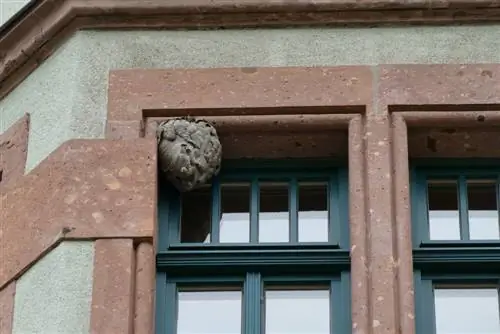
Wasps only use a nest for one season. When this season comes to an end in autumn, the queen also leaves the nest to hide in a protected place. At this point at the latest, there will be an opportunity to remove the empty nest easily and without the risk of being stung. The best way to do this is to put a plastic bag over the nest from below, cut the top off with a knife and let it fall into the bag. This is certainly not a quick solution that works immediately. Once the nest has been removed, lavender bags are placed nearby shortly before the start of the new season, thereby making the place extremely unattractive for the animals.
Living with wasps
As annoying as wasps can be, they are still extremely useful in our gardens. On the one hand, the workers of a wasp colony catch huge amounts of pests, especially their larvae. They serve to provide the offspring with a consistent and sufficient supply of proteins. On the other hand, adult wasps play an important role in flower pollination. They feed on pollen and fly from flower to flower in search of food. Against this background, wasps can definitely be classified as beneficial insects. As a garden owner, you undoubtedly benefit from the animals. It is therefore a good idea to come to terms with them. Ultimately, it's always about finding a way to live with the wasps. The home remedies discussed above help, as do rational reactions to a wasp. In any case, there is usually no reason to panic when you come into contact with wasps.

